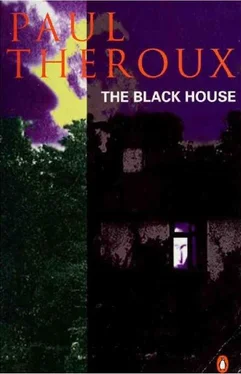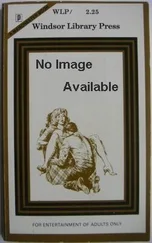Paul Theroux - The Black House
Здесь есть возможность читать онлайн «Paul Theroux - The Black House» весь текст электронной книги совершенно бесплатно (целиком полную версию без сокращений). В некоторых случаях можно слушать аудио, скачать через торрент в формате fb2 и присутствует краткое содержание. Год выпуска: 1996, Издательство: Penguin Books, Жанр: Современная проза, на английском языке. Описание произведения, (предисловие) а так же отзывы посетителей доступны на портале библиотеки ЛибКат.
- Название:The Black House
- Автор:
- Издательство:Penguin Books
- Жанр:
- Год:1996
- ISBN:нет данных
- Рейтинг книги:4 / 5. Голосов: 1
-
Избранное:Добавить в избранное
- Отзывы:
-
Ваша оценка:
- 80
- 1
- 2
- 3
- 4
- 5
The Black House: краткое содержание, описание и аннотация
Предлагаем к чтению аннотацию, описание, краткое содержание или предисловие (зависит от того, что написал сам автор книги «The Black House»). Если вы не нашли необходимую информацию о книге — напишите в комментариях, мы постараемся отыскать её.
The Black House — читать онлайн бесплатно полную книгу (весь текст) целиком
Ниже представлен текст книги, разбитый по страницам. Система сохранения места последней прочитанной страницы, позволяет с удобством читать онлайн бесплатно книгу «The Black House», без необходимости каждый раз заново искать на чём Вы остановились. Поставьте закладку, и сможете в любой момент перейти на страницу, на которой закончили чтение.
Интервал:
Закладка:
“I never believe a word you say,” said Caroline. “They can’t be as bloodthirsty as that.”
“Doctor Munday will vouch for me,” said Awdry.
“Two points,” said Munday in his tutorial manner. “One, there’s usually some kind of deliberation before a man is found guilty. And, two, where property is involved the punishment is fairly harsh.” He went on, though in doing so he felt an awkward sense of betraying people he knew for people who were only interested in discrediting Africans. It was the penalty of his long residence among Africans, he believed: his knowledge of them only seemed to incriminate them. But he was anxious to hold Caroline’s attention. He said, “I remember an African who got a five-inch nail hammered into his skull. He had killed his wife at a beer party. I’ve heard of others who’ve had their feet chopped off—and they still use the ant-hill in some parts of Uganda. A Chiga girl who commits incest is thrown over a cliff by her father—”
“Why that’s savage,” said Caroline, her eyes flashing.
“Perhaps no worse than our own death penalty,” said Munday. “The gallows, what-have-you.”
“You’re way out of date,” said Awdry. He was laughing.
“Capital punishment’s been abolished,” said Caroline.
“I had no idea,” said Munday.
“Bloody silly, if you ask me,” said Awdry. “But there it is. Ah, here comes Jerry. We ean eat.” Jerry, the last guest to arrive, was out of breath, apologizing for being late as he handed his coat to Awdry. On the way over, he said, he had stopped to have a look at his cows and had found one which hadn’t been milked. The milking had delayed him.
“Jerry’s the only one who really belongs here,” said Caroline. “The rest of us are all foreigners.”
“The native among the expatriates,” muttered Munday.
“I was bom up the road,” he said to Munday. “Broadwindsor way.”
He was young, with a frank sunburned face, and square shoulders that had stretched his fashionable suit-jacket out of shape. Though his movements were shy—he glanced continually at his hands and heavy shoes—he had a clipped way of speaking, the local accent Peter Motherwell had tried to imitate (Jerry was saying, with the guileless scorn of a Bwamba, why his wife had had to stay at home). Now Munday understood the embarrassment of Peter’s mimicry. It was that of the settler joke, told when the houseboy was in the kitchen.
“Doctor Munday. Jerry Duddle,” said Caroline. “Doctor Munday’s been telling us the most horrible stories.”
“Pleased to meet you,” said Jerry.
Munday was about to ask him about his farm when Janet came over and asked, “Jerry, do you have any views on hunting?”
“I don’t hunt much myself,” said Jerry. “Don’t have time for it—too busy with the farm. I do a little fishing.”
“But, don’t you agree that hunting’s cruel?” Janet had stepped in front of Munday and was facing Jerry. “Cruel? In what way?”
“It’s bloody.”
“Bloody expensive,” said Jerry. “Those floats set you back a few quid.”
Janet raised her eyes to the ceiling and said, “I suppose I’m alone in thinking it should be banned.” Jerry said, “I always say if people can afford to do something, and they enjoy doing it, who am I to tell them they’re wrong?”
“That’s our boy,” said Awdry; and Peter said, “Hear, hear!” Awdry crossed the room to show Anne Motherwell and Michael Strick and the vicar’s wife a framed photograph on the wall, a group of Africans on the bank of a flood-swollen river, near which a Land Rover was parked. Awdry said, “Five minutes after that picture was taken, this old man was drowned trying to ford the river.” Munday was on his way over to see the photograph of the doomed man. He noticed Emma near the fire, her hands clasped on a drink. She was alone.
“Are you all right?”
“I thought I was going to faint,” Emma said. “I think I startled that young man.”
Munday wondered which young man she was talking about. He looked around the room and then said, “Seems they’ve abolished capital punishment. I had no idea. That Summers woman was telling me.” '7 could have told you that,” said Emma.
“What’s wrong?” said Munday. “You seem cross.”
“I’m not well,” said Emma. “And I don’t like that woman.”
“Why? You don’t even know her.”
“I know her,” said Emma. “She wants you.”
“Don’t be silly.” Munday saw Caroline seated on the arm of a chair.
'‘I can tell—a woman can always tell. She’s making a play for you.”
Munday said, “You’ve had too much to drink.”
“This is tap water,” said Emma. “That young man fetched it. I thought I was going to faint.” But Munday was staring at Caroline. He said, “How do you know she’s making a play for me? I didn’t say two words to her.”
“Something in her face—the way she was standing,” said Emma. “She stares at you.”
“Is that all!”
“And she hates me,” said Emma. “That’s the proof.”
“You’re imagining things,” said Munday.
“When I saw her come in tonight,” said Emma in a low voice, “I thought I recognized her. I was going to go over and introduce myself. But something stopped me. I took a good look at her and she glared at me in a most hateful way. And then I knew.” Emma turned to face Munday. She said, “Alfred, that’s the woman”
“Which woman?” he asked. But he knew.
Emma pressed a handkerchief to her mouth. Her eyes were large with fright and she seemed to be on the verge of tears. The anger which had masked her fear had left her, and now she looked extremely tired and rather small and defeated.
Taking Emma by the arm Munday started towards the dining room, and though he was at some distance, nearly two long rooms away, he saw Caroline clearly in the candlelight where the other guests were shadowy; she stared, searching him with her very white face, no stranger now, but so intimate she understood his longing. She had seen his conversation with Emma, and without hearing, she knew every word they had said.
12
“Is this hot or cold?” Anne Motherwell’s spoon was poised over the soup.
“It’s vichysoisse,” said Mrs. Awdry. “I hope you like it.”
“That’s means cold,” said the vicar.
“There’s always a first time,” said Jerry. Saying this he engaged the attention of the table. Everyone watched for his reaction while he took a spoonful. He smiled and swallowed. He said in a surprised voice, “Potatoes,” then, “but very tasty,” and the rest began to eat.
“Did anyone here go over to that meeting in Brid-port to protest the oil-drilling?” asked Janet Strick.
“We were there,” said Peter. “It was very encouraging to see all those concerned people.”
“What exactly are they concerned about?” asked Munday.
“Marauders,” said Anne.
“They’re planning to turn the countryside here into an industrial wasteland,” said Michael. “There’s a scheme afoot to drill for oil in Powerstock.”
“It’s got everyone up in arms,” said Awdry.
“Not everyone,” said Janet. “It looks as if they might go through with it.”
The vicar cleared his throat. He said, “Some years ago—this was before my time—they said they were going to put huge pylons through Marshwood Vale. There were protest meetings and so forth, petitions and letters to the paper. Some people were quite vocal.” He smiled. “And then of course they put the pylons up.”
“That’s always the way,” said Mrs. Awdry.
“I’ve seen them from the back of my house,” said Munday.
“Sorry about that,” said Awdry.
Читать дальшеИнтервал:
Закладка:
Похожие книги на «The Black House»
Представляем Вашему вниманию похожие книги на «The Black House» списком для выбора. Мы отобрали схожую по названию и смыслу литературу в надежде предоставить читателям больше вариантов отыскать новые, интересные, ещё непрочитанные произведения.
Обсуждение, отзывы о книге «The Black House» и просто собственные мнения читателей. Оставьте ваши комментарии, напишите, что Вы думаете о произведении, его смысле или главных героях. Укажите что конкретно понравилось, а что нет, и почему Вы так считаете.












